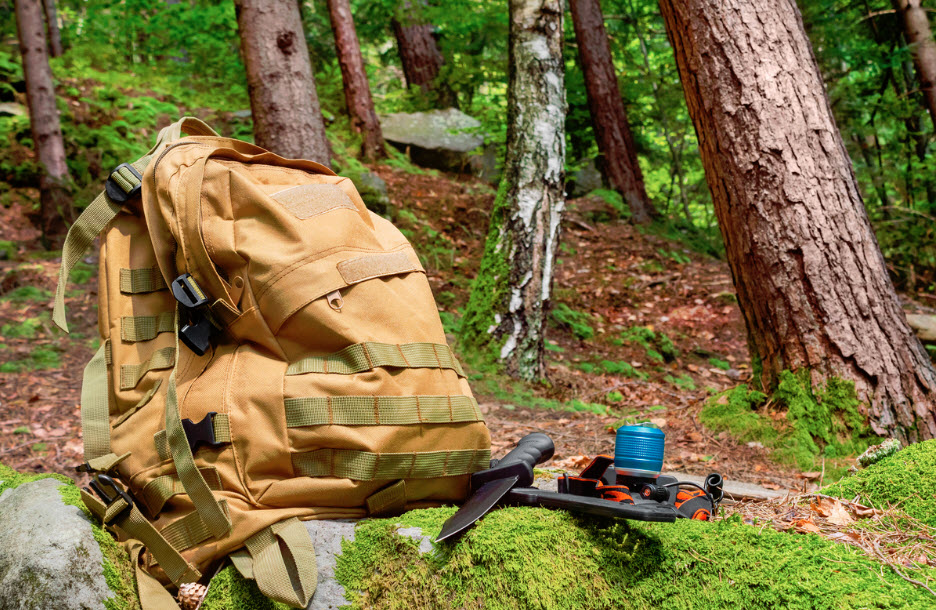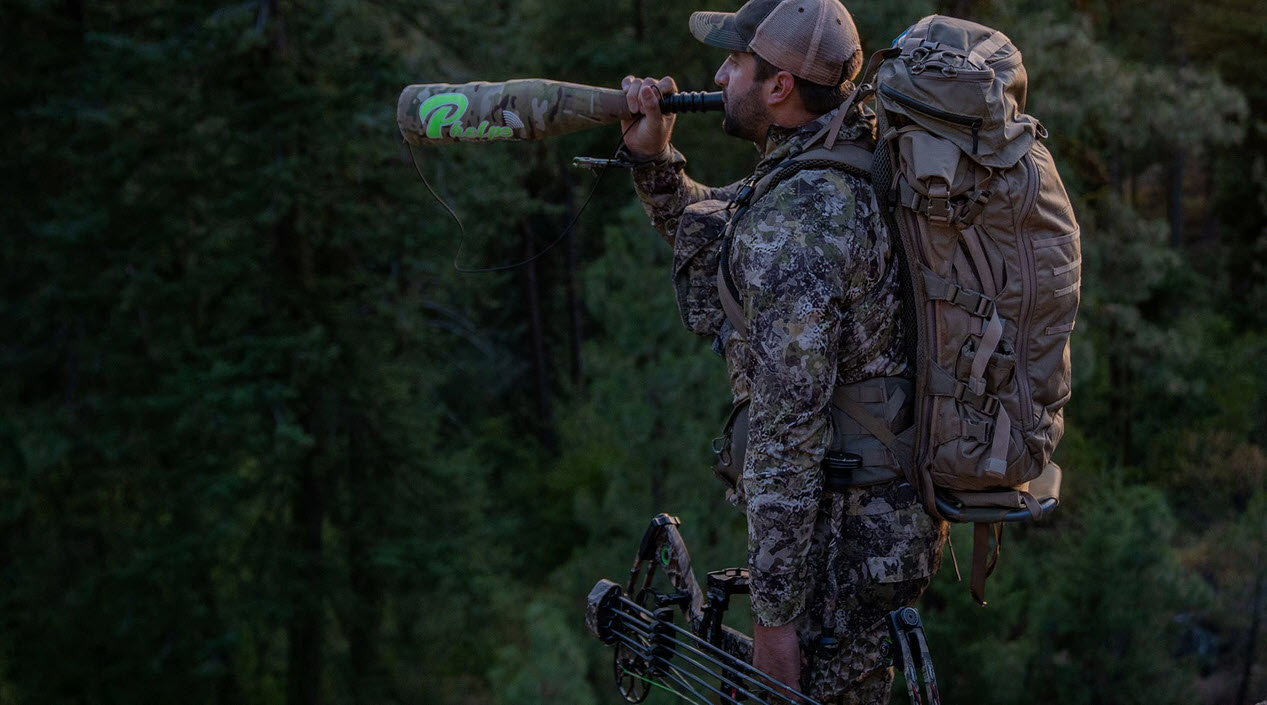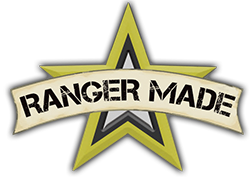
If you like backpack hunting, you already know that it’s both challenging and unique. The weight of your hunting backpack may not seem important in flatlands, but it can sure make a difference when you have to go up and down all the time. Every ounce will count when you’re hunting on rough terrain with elevation, and you will need to know every pound that you’re carrying in your backpack.
Weight hurts, especially when you go backcountry hunting in the mountains. It will make it difficult for you to gain elevation fast, slow you down, tiring you and affect your recovery time as well. A lightweight backpack will work better than a heavier model, but you should never sacrifice functionality for your hunt trip either.
Backpack hunters learn fast because the backpack functionality can make the difference between a good and a bad hunt. You have to be able to walk the rough off-trail and be ready for all that weather throws at you. An experienced hunter will know to glass, harvest, and process the game, packing the heavy loads of meat and carrying it all back home. Easier said than done.
Page Contents
What gives the hunting backpack weight?
When it comes to backpack hunts, many make the mistake of listing too many weights. One will say, “I will carry a 30lbs pack for my five-day hunt,”; but where’s the water, food, or gear in all that?
We will need to take a look at four different weights when it comes to hunting backpack:
- Base weight
- Pack weight without the water and food
- Total backpack weight
- Total skin-out weight
Base weight
Base weight refers to your backpack, sleeping bag/pad, and shelter. If you go on a light hunt trip, 10lbs base weight should be fine. Some will manage with just eight or even 6 lbs, but it’s a stretch, and only the most experienced backpack hunters will succeed.
If you go hunting in the late season, you will need more because you have to add some insulation and a packable wood stove for tee or hot soup.
After hunting through rain, snow, wind, or freezing rain, you will need to warm up, and you should carry a stove with you. Even if your pack will become heavier, it’s essential to be comfortable and warm too. No matter what other people say, no hunter will focus if his hands are freezing and the clothes are wet.
Backpack weight without food & water
It’s not very difficult to figure out the number becomes you add the weight of your gear. Everything that you will eat, drink, game bags and kill kit-they all become equipment that adds weight to your backpack.
Experienced hunters pack the same gear every time and only add/remove some items according to the weather conditions.
However, an entry-level hunter will go through some trials and errors before discovering what they genuinely need out there and not. Many are tempted to pack “what-if” items that they will most likely not use; many of these items can be replaced by other gear pieces (already packed).
It’s better to learn how to use gear in various situations and give your equipment new purposes.
A non-consumable pack can weigh anything from 27 to 35 lbs for most hunting trips; insulation, optics, and comfort gear will affect the final weight too.
See also: How to size and fit a hunting backpack
Total pack weight
Once your backpack is completely packed, you will have the total pack weight. Once again, it takes a lot of practice (and bad experiences) to discover the total pack weight you can carry throughout your hunt and succeed at your hunting.
Don’t forget to pack water, especially if your camp spot is away from the trailhead. You will need to carry more water when hunting on dry ground, and frequent streams allow you to pack fewer bottles.
When it comes to food, your necessities count the most. Many hunters have a fast metabolism, so they need more food; some can go through the day with just a couple of snacks.
1.5 lbs of food per day for 2200 calories is enough for many hunters; expect to lose some weight if you have high elevation.
For the best image, a pack with 10-days of food and 3 liters of water will result in 43-48 lbs for the backpack, but it can go well over 50lbs if you also need insulation.
Total skin-out weight
The number is essential because it reflects how much weight your body can take when hunting. But it’s not only the weight of your backpack that you have to carry; it’s also the boots, clothing, optics, hat, knife- they can all add up to 15lbs to the total pack weight.
It’s these items that many hunters skip when thinking about the weight they’re about to carry. As long as you’re moving, you will always have the clothes, boots, belt, etc.
The total skin out weight for a ten-day hunt at the end of October can go as high as 63 lbs; clothing, insulation, optics, and weapon may modify the number too. It’s possible to take even lighter than that, but there’s a high risk for sacrificing comfort or functionality.
How can you lower the weight of your hunting backpack?
Many hunters don’t realize, but there are different methods for reducing the hunting backpack. Everything that you put in your pack may not seem heavy at home, but it can affect your comfort and mobility after 8 hours of elevating through wind and rain. Here are some practical recommendations.
Use fewer power optics.
Optics are essential for a successful hunt, and there’s no doubt about it. Hunters like to use optics to increase their chanced for a precise shot. Many hunters believe that more powers help you see more animals, but that’s not necessarily true.
You will find high-quality optics in lower powers, which gives better performance than a low-quality optic with a higher power. Also, less xs (power) is lighter.
Many western hunters carry 10×42 binos and 15×56 binos; even if it’s a dependable setup, you will be more successful with 12x. 8×42 binos make a dependable option because they’re lightweight and give w wide field of view. Ultimately, using 8s and 12s instead of 10s and 15s reduces your pack’s weight and spending; it widens your field of view too.
As for spotters, not all hunters will pack them. If you’re a hunter who likes to use optics, the less xs principle is available (smaller objective lens).
Carbon or aluminum tripod?
Optics are essential for hunting, and it’s not worth purchasing low quality to save a buck or two. Carbon tripods are available, and much present good quality and will cut down the weight of your backpack.
You can find a 2lbs carbon tripod for $280 and a 5lbs aluminum tripod for $265. Your backpack will be lighter with a carbon tripod, and you only have to pay a bit over $10 for the difference.
Weapon choice
If you haven’t bought your chosen weapon for the season just yet or you want to upgrade, you should keep reading how the weapon can affect your backpack weight.
Bow
Aluminum bows weigh more than 4lbs, whereas carbon bows will weigh less than 4lbs. Carbon bows bring many good things to the table, as they have a lower risk for vibration, run quietly, and feel warmer to the touch in the cold late season. You will save anything from 4 to 8oz when using a carbon bow instead of an aluminum model.
Rifle
If you plan to hunt with a rifle, you should know that you may reduce the weight in different ways. For instance, you can buy a custom carbon fiber barrel, assuming you have the budget for it nevertheless. Regardless of your final choice, you can permanently save some weight when using a rifle, whether you have a big budget or not.
You can go, for instance, with a short-action cartridge and not a long-action cartridge. The shorter cartridge utilizes a shorter bolt and a shorter action so that you can save as high as 5oz.
Another method for cutting down the weight is to turn to a non-magnum cartridge instead of a magnum. Less noise, less muzzle blast, and a more affordable ammo price are excellent reasons to make the switch. Also, in terms of weight, magnum cartridges will need longer barrels for burning the extra powder, which means more weight.
Some rifle manufacturers will utilize heavier barrels on Magnus on top of everything else than on the non-magnum models. When you switch to a non-magnum model, you will save up to 5oz or more, according to the rifle you’re using.
Food
Food can add a lot of weight to your backpack while you’re hunting. You cannot go backpack hunting without any food, but there are many ways to become more effective.
Stove or no stove?
If you go in the late season, hot tea and hot soup can mean the world for your comfort before going to sleep, especially if you’ve been hunting through wind or rain all day. However, if the weather isn’t too cold, you don’t necessarily need a stove when backpack hunting.
Going stoveless will provide you more effortless movement and spare you of the weight of a stove. You may shave as much as 28oz when hunting without a stove in your backpack.
Fats or carbs?
It’s essential to pack the food you like and the food that gives you energy for backpack hunting. You may consume more fats and fewer carbs; you need both for energy, but fats will last you longer than carbs and will give you more calories per gram than carbs too. It’s 9calories/g for fat and only 4cal/g for carbs. However, when you eat more fats, you will feel full for a longer time, and you will pack less food too. You won’t get fat, because you will backpack all day long.
Yourself
It will sound surprising to many, but one of the best ways to cut down your carry weight when backpack hunting is yourself. Losing a couple of pounds by simply observing your diet and exercising for an hour every day, five days a week, can help you lose at least 5lbs. Try to remove all added sugars and processed food from your diet too. Small changes in your diet may lead in important weight loss.
When you’re slimmer, you will be healthier and capable of more intense physical activity, which backpack hunting is.
One final thought
If you’re not backpack hunting alone and go with a hunter friend, you may save weight by splitting your gear between the two of you. When you’re hunting with a friend, you no longer need a stove, for example. While one of you will carry the stove, the other can have the water filter or any other gear useful for two people in the wild. Also, you can pack a tent for three and use the extra space for storing your backpacks or other equipment. One can carry the tent and the rain cover, and the other may take the stakes and poles.
As long as you’re practical and don’t rush into backpack hunting, you should always be able to get better control of the overall weight of your backpack. It takes a lot of practice to discover what you need per se when backpack hunting, nevertheless.








